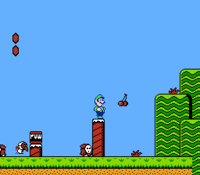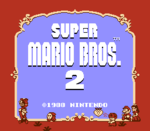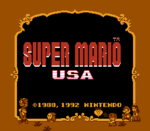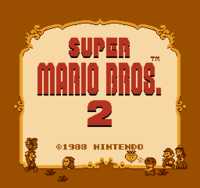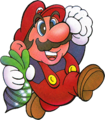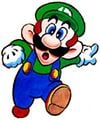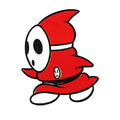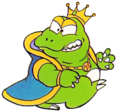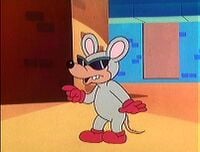Super Mario Bros. 2
- This article is about the Western Super Mario Bros. 2. For the original sequel to Super Mario Bros. also titled Super Mario Bros. 2, see Super Mario Bros.: The Lost Levels. For the Nintendo 3DS sequel to New Super Mario Bros., see New Super Mario Bros. 2.
- "SMB2" redirects here. For the power-up and its respective form in Super Mario Maker 2, see SMB2 Mushroom and SMB2 Mario.
| Super Mario Bros. 2 | |||||||||||||||
|---|---|---|---|---|---|---|---|---|---|---|---|---|---|---|---|
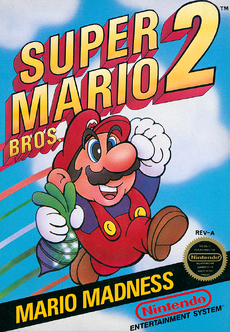 For alternate box art, see the game's gallery. | |||||||||||||||
| Developer | Nintendo EAD | ||||||||||||||
| Publisher | Nintendo | ||||||||||||||
| Platform(s) | Family Computer/Nintendo Entertainment System, Nintendo PlayChoice-10, Virtual Console (Wii, Nintendo 3DS, Wii U), NES Classic Edition/Nintendo Classic Mini: Family Computer, Nintendo Entertainment System - Nintendo Switch Online | ||||||||||||||
| Release date | NES/Famicom: Nintendo PlayChoice-10: Virtual Console (Wii): Virtual Console (3DS): Virtual Console (Wii U): NES Classic Edition: Nintendo Entertainment System - Nintendo Switch Online: | ||||||||||||||
| Language(s) | English (United States) | ||||||||||||||
| Genre | 2D platformer | ||||||||||||||
| Rating(s) |
| ||||||||||||||
| Mode(s) | Single player | ||||||||||||||
| Format | Famicom:
NES:
Wii: Wii U: Nintendo Switch: Nintendo 3DS: NES Classic Edition:
Built-in
| ||||||||||||||
| Input | Famicom:
NES:
Wii: Wii U: Nintendo Switch: Nintendo 3DS: NES Classic Edition:
| ||||||||||||||
| Serial code(s) | NES: PlayChoice-10: Famicom: | ||||||||||||||
Super Mario Bros. 2 is the second game in the Super Mario series outside Japan and the third entry overall.[12] It is a 2D platform game originally released for the Nintendo Entertainment System in North America in 1988. In the years that followed, it has been ported to many other systems, including a release on the Wii's Virtual Console in 2007, the Nintendo 3DS's Virtual Console in 2012, and the Wii U's Virtual Console in 2013. As a result of Japan already having a Super Mario Bros. 2 (known in English as Super Mario Bros.: The Lost Levels and Super Mario Bros. for Super Players), the game did not make its debut in the country until after the release of Super Mario World, on September 14, 1992, making it Japan's sixth installment of the series.[12][13]
One of the central game mechanics that differentiates Super Mario Bros. 2 from other Super Mario games is that players can select four characters—Mario, Luigi, Toad, or Princess Toadstool—and each of these characters has their unique gameplay mechanics, offering advantages and disadvantages in their stats. Another distinction is that players cannot defeat enemies by stomping on them; players need to either toss items at enemies or pick up and toss enemies at each other to defeat them.
Super Mario Bros. 2 came about after Nintendo of America deemed Super Mario Bros.: The Lost Levels too difficult for Western audiences,[14] which led Nintendo to redevelop the Family Computer Disk System game Yume Kōjō: Doki Doki Panic into a Super Mario Bros. game for the international release. After its release, the game became a commercial success, and eventually the game became well received enough that it was also released in Japan. After performing well both critically and commercially, Super Mario Bros. 2 has been rereleased as one of the four games featured in Super Mario All-Stars, as well as having its own remake in Super Mario Advance. Many enemies introduced in Super Mario Bros. 2 have become common recurring enemies in the Super Mario franchise, such as Bob-ombs, Pokeys, Shy Guys, and more, while the gameplay mechanic of picking up various items and tossing them has been reused in several later games.
Story[edit]
Story from the instruction booklet
One night, Mario had a strange dream. He found himself climbing a long staircase leading up to a mysterious door. Opening the door, Mario's eyes fell upon an incredible world unlike anything he'd ever seen. A quiet voice spoke to Mario, saying,
"Welcome to Subcon, the land of dreams. Our once-beautiful world now suffers at the hands of the evil Wart. Please help us! Only you can free us from his tyranny. Oh, and remember one thing: Wart hates vegetables."
However, before Mario could figure out what was happening, he suddenly awoke on his bed and realized that it was all a dream. The next day, while heading out to a picnic with his friends Luigi, Princess Toadstool, and Toad, Mario told the tale of his strange dream. Hearing this was quite a shock to his friends, who all had the very same dream the night before.
Upon arriving at their picnic spot, the group noticed a small cave. Inside was a long staircase that led up to a door. At the top, the four friends opened the door and stood shocked by what they saw. It was Subcon - the world of their dreams!
Mario discovers that Subcon has been taken over by Wart and that the events of his dream are true. Mario and co. are now on a quest to defeat Wart and restore peace to the dream world. At the end of the game, Mario, Luigi, Toadstool and Toad are seen being chanted on by the inhabitants of Subcon, who are carrying Wart across the room. Mario then wakes up and wonders about whether the events were true or just a dream. He then continues sleeping and the game ends.
In-game story
When Mario opened a door after climbing a long stair in his dream, another world spread before him and he heard a voice call for help to be freed from a spell.
After awakening, Mario went to a cave nearby and to his surprise he saw exactly what he saw in his dream....
Gameplay[edit]
Since the game is a reskin of Yume Kōjō: Doki Doki Panic, it has little in common with the original Super Mario Bros. For example, in order to defeat enemies, the player needs to pluck clumps of grass to receive items (such as vegetables), and then throw the vegetables at them. It is also possible to defeat enemies by jumping on them, picking them up and then throwing them to other enemies. There are a few elements in common with its predecessor, however, such as the appearances of the Mushroom and Starman, although the former has a different function. If the player has one health point remaining, they turn into their Small form. Additionally, there are no power-ups in the game that grant the player additional abilities in the Super form such as the ability to shoot fireballs, making Super Mario Bros. 2 one of the only 2D Super Mario titles (with the other being Super Mario Run) to not have additional forms after the Super form.
At the beginning of each level, the player can choose between the playable characters: Mario, Luigi, Toad, and Princess Toadstool. All four characters have different powers and statistics. When entering the next level, players can select a different character.
At the end of most levels of the game, the player fights Birdo. The player has to jump on the eggs that it spits, grab them and throw them back, hitting Birdo three times to gain a crystal which opens the Mask Gate at the end of the level. There are several colors of Birdos: pink, which only spits eggs; red, which spits eggs and fireballs and green, which only spits fireballs. For the green Birdos, there are Mushroom Blocks nearby for the player to use instead.
There are seven worlds in this game. The first six has three levels apiece, and the seventh has only two. The reason the final world is missing a third stage is not explained in the game, but the backstory for Yume Kōjō: Doki Doki Panic makes it clear: the framing narrative for this game, which is a storybook and not a dream, has the final page of the story being torn in half, thus eliminating the part in which Wart is defeated. Essentially, in beating the game, the player is restoring the final chapter of the story.[15]
Defeated enemies and Birdo can re-spawn if the player runs one screen away from the area where they normally appear and return, which may allow the player to defeat the enemies again in order to regain health if necessary; this still occurs in later releases (except Super Mario Advance), but a defeated Birdo does not reappear unless the player completely leaves and re-enters the areas where Birdo is fought.
Controls[edit]
| Action(s) | NES | Wii Remote | Wii Classic Controller | GameCube Controller | Nintendo 3DS | Wii U GamePad / Pro Controller (Default) | Nintendo Switch Dual Joy-Con / Pro Controller (Default) | Nintendo Switch Single Joy-Con (Default) |
|---|---|---|---|---|---|---|---|---|
| Jump, accept | ||||||||
| Dash, pick up objects, throw objects, pluck vegetables, stop slots at the Bonus Chance | ||||||||
| Pause the game, confirm menu option | ||||||||
| Select option after a Game Over | ||||||||
| Select character, move character | ||||||||
| Enter doors and other openings, climb up vine | ||||||||
| Crouch (Power Squat Jump if held long enough), enter jars, climb down vines |
Characters[edit]
Playable characters[edit]
| Character Name | Mario | Luigi | Toad | Princess Toadstool |
|---|---|---|---|---|
| Artwork | 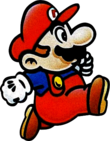
|
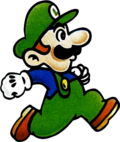
|

|
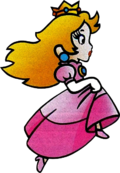
|
| Speed | ★★★★☆ | ★★★☆☆ | ★★★★★ | ★★☆☆☆ |
| Jump | ★★★★☆ | ★★★★★ | ★★☆☆☆ | ★★★☆☆ |
| Strength | ★★★★☆ | ★★★☆☆ | ★★★★★ | ★★☆☆☆ |
| Description | Mario has average stats, making him an acceptable choice in all situations. He has no outstanding abilities. | Luigi has a high jump, but he is weaker than average. He is slightly slower than average as well. | Toad is the fastest and the strongest. He has the lowest jump in the game, however. Due to his poor jumping ability, he relies heavily on the charged jump. | The princess has a special float jump that allows her to hover in midair, which can be used to jump further or correct an otherwise fatal landing. As a tradeoff, she has the lowest speed and power. |
Subcons[edit]
| Image | Name | Description |
|---|---|---|
| Subcons | The Subcon species are a group of peaceful fairy-like beings that have their land invaded by Wart. Wart traps them in jars, and they plead Mario and his friends for help. They also give Mario and his friends vital information to defeat Wart (namely that Wart hates vegetables). |
Enemies and obstacles[edit]
Enemies[edit]
The rightmost column "Grab" denotes whether the enemy can be picked up and tossed. Every enemy in the game appeared in the original Yume Kōjō: Doki Doki Panic.
| Image | Name | Description | Levels | Grab | |
|---|---|---|---|---|---|
| First | Last | ||||
| Shyguy - Red | Wart's masked foot soldiers that walk along the ground. Shyguys are the most common enemies and are weak to all attacks. The red-clad ones walk off of ledges. | World 1-1 | World 7-2 | Yes | |
| Shyguy - Pink | Pink Shyguys turnaround when they reach the edge of platforms. | World 1-1 | World 7-2 | Yes | |
| Tweeter | Masked birds that hop across the ground in short arches. | World 1-1 | World 7-2 | Yes | |
| Snifit - Red | Shyguys that spit bullets. The bullets travel horizontally and damage players on contact. There is only one red Snifit, which walks off of ledges like red Shyguys. Red Snifits otherwise appear on one of the slots in Bonus Chance. | World 3-3 | Yes | ||
| Snifit - Gray | Gray Snifits jump in place and spit bullets. In some levels, they appear green. | World 1-2 | World 7-2 | Yes | |
| Snifit - Pink | Pink-clad Snifits turnaround when the reach the edge of platforms. They are the most common Snifits. | World 1-3 | World 7-2 | Yes | |
| Ninji - 1 | Impish ninjas. Ninjis are black but appear blue in underground caves. The first types of Ninjis jump vertically but otherwise remain still. | World 1-1 | World 7-2 | Yes | |
| Ninji - 2 | The second types of Ninjis chase players and hop in low arches. | World 1-2 | World 7-1 | Yes | |
| Beezo - Red | Winged Shyguys that carry bidents. Red Beezos swoop down to strike players. | World 1-2 | World 5-3 | Yes | |
| Beezo - Gray | Gray Beezos fly forward in straight lines. | World 4-1 | World 6-2 | Yes | |
| Hoopster | Lady beetle-like enemies that live on vines. Hoopsters slowly crawl up and down, occasionally speeding up while descending. They harm players when they make contact with them from above or the side, but they can be safely stood on. | World 1-1 | World 7-1 | Yes | |
| Phanto | Masks that guard keys. Phantos are normally inert, but one comes to life when players grab a key. They doggedly fly after them as long as the key is held. They are uninhibited by terrain and transitions to other areas, even appearing in Subspace. A Phanto is defeated only when touched by players' invincible form with a Stop Watch in affect, but another one appears to take its place. | World 1-2 | World 7-2 | No | |
| Trouter | Goldfish-like enemies that ascend waterfalls. Players can use Trouters as platforms to jump across bodies of water, but they harm them when touched at the sides. | World 1-3 | World 5-2 | No | |
| Porcupo | Hedgehog enemies protected by spines. Direct contact damages players. Porcupos are defeated only when an item is tossed at them. | World 3-2 | World 5-2 | No | |
| Bob-Omb | Walking bombs that travel back and forth. They self-destruct when players are near. They can be used like normal bombs when tossed. | World 3-3 | World 7-2 | Yes | |
| Albatoss | Raptors that carry Bob-Ombs and fly horizontally. They drop them when players are below. Albatosses can be stood on and used to reach distant areas. | World 3-3 | World 7-1 | No | |
| Pidgit | Small crows that ride magic carpets. Pidgits swoop down to strike players, but this also makes them easier to defeat. Defeating a Pidgit leaves its magic carpet available for players to use. | World 1-2 | World 5-3 | Yes | |
| Cobrat | Snakes that spit bullets. Cobrats slither across terrain or sit in tall jars. When players approach, they jump out and fire a single bullet. | World 2-1 | World 6-3 | Yes | |
| Panser - Red | Flowers that release projectile fireballs. The red-petalled Pansers are stationary and shoot three at a time. | World 2-1 | World 7-2 | No | |
| Panser - Gray | Gray Pansers actively walk and turn around when they reach the edges of platforms. They fire fireballs straight up. | World 3-1 | World 7-2 | No | |
| Panser - Pink | The pink Pansers actively pursue Mario. | World 3-1 | World 6-1 | No | |
| Ostro | Ostrich-like creatures ridden by red Shyguys. Ridden Ostros chase after players, but if the Shyguys are removed they run in straight line. Ostros do not bounce off other enemies when tossed. | World 3-2 | World 5-2 | Yes | |
| Pokey | Segmented cactus enemies that slowly shuffle across terrain. Pokeys are of various heights. They can be defeated by having objects thrown at them or their body segments being removed one by one. | World 2-2 | World 6-3 | No | |
| Autobomb | Wheeled turrets, usually controlled by red Shyguys. Autobombs fire bullets, but if the Shyguys are removed, they simply move. Players can ride on them. They are only destroyed with items. | World 4-1 | World 4-2 | No | |
| Flurry | Snowman-like creatures that chase players across icy terrain. They move quickly but have poor traction. | World 4-1 | World 4-3 | Yes | |
| Spark | Masked electric orbs that cause damage on contact. Sparks hover in the air or travel across terrain, including the sides and ceilings. | World 1-3 | World 7-2 | No | |
Obstacles[edit]
| Image | Name | Description | Levels | |
|---|---|---|---|---|
| First | Last | |||
| Quicksand | Players slowly sink as they stand on top of quicksand. Jumping help keeps them above the surface. | World 2-1 | World 6-1 | |
| Small jar | The small-sized jars indefinitely expel Shyguys or Bob-Ombs. Unlike the large ones, they cannot be entered. | World 3-3 | World 7-2 | |
| Spikes | Spikes line the floor of fortresses. They damage players on contact, but Shyguys and other enemies can walk across them unharmed. | World 1-3 | World 7-2 | |
Bosses[edit]
Bosses are listed in the order that they are first encountered.
| Image | Name | Description | Levels | |
|---|---|---|---|---|
| First | Last | |||
| Mid-bosses | ||||
| Birdo | Birdo appears at the end of every first and second level in the worlds. Birdo comes in three varieties. The pink one simply shoots eggs, which can be picked up and thrown back at her. | World 1-1 | World 4-3 | |
| Birdo - Red | The red one shoots randomly eggs or fireballs (which harms players if they touch them). | World 2-2 | World 7-2 | |
| Birdo - Gray | The remaining type appears green or gray depending on location (but are assigned to the same palette) and shoots only fireballs; these ones must be defeated with mushroom blocks. | World 5-1 | World 7-1 | |
| Mask Gate | Although most Mask Gates are harmless and allow completion to the level, the Mask Gate within the dream factory is aggressive, attacking the players by flying into them. Players must attack it with Mushroom Blocks to stun it for a short period. Once it is stunned, it allows entry into Wart's room. | World 7-2 | ||
| Bosses | ||||
| Mouser | Mouser is the first true boss players encounter. He attacks by throwing bombs. The bombs sit for a while before they explode, enabling players to pick them up and throw them at Mouser. If the bomb explodes on Mouser, he takes damage. There are two variants of Mouser: one with pink ears and one with green ears. A white and red variant was replaced by Clawgrip when Yume Kōjō: Doki Doki Panic was retooled into Super Mario Bros. 2. | World 1-3 | World 3-3 | |
| Tryclyde | Tryclyde shoots a series of fireballs that harms the player if the player touches them. Players must throw several Mushroom Blocks at Tryclyde to defeat him. | World 2-3 | World 6-3 | |
| Fryguy | Fryguy shoots fireballs at players. Players must throw Mushroom Blocks at him to damage him. Once he takes enough damage, he bursts into Small Fry Guys. These take one hit from a Mushroom Block to be defeated, and destroying these enemies clears the level. | World 4-3 | ||
| Clawgrip | Clawgrip throws rocks at players. These rocks can be picked up and tossed at Clawgrip, inflicting damage on him. Once he is hit five times, he is defeated. | World 5-3 | ||
| Wart | Wart is the final boss of the game. He moves back and forth and shoots harmful bubbles at the player. A machine nearby spawns vegetables. To defeat Wart, players must throw these vegetables at Wart when Wart's mouth is open. Wart takes six hits to defeat. | World 7-2 | ||
Items and objects[edit]
Items[edit]
These are collectibles, pickups, and health-restoring objects.
| Image | Name | Description |
|---|---|---|
| Coins | Coins are found only in Sub-space. When players pluck vegetables, they receive coins. Coins are used in the Bonus Chance at the end of a level for extra lives. | |
| Unripened vegetables | Vegetables are plucked from grass and can be thrown at enemies to defeat them. Vegetables bounce after they hit an enemy, which can lead to consecutive hits on enemies. If one vegetable defeats enough enemies, extra lives may be rewarded. The small unripened vegetables have no additional effects when tossed. | |
| Vegetables | Consecutively pulling four large, fully ripened vegetables will ensure the next one is a stop watch. | |
| Turtle shells | Turtle shells are found in grass. Once they are thrown, they slide across the ground, defeating any enemy it touches. Once it hits a wall, it is destroyed. If players attempt to land on the shell, they can ride on it. | |
| Bombs | Bombs can be found above ground, from plucking grass, or from Mouser. They eventually explode, destroying brick walls as well as harming nearby enemies and players. | |
| Mushroom blocks | Mushroom blocks are simple throwing items. They can be used as weapons or get stacked so players can reach higher places. Mushroom block designs vary from world to world. | |
| 1 UP mushrooms | When players collect this item, they receive an extra life. | |
| Small hearts | For every eight enemies defeated, a small heart appears. Small hearts restore any HP players have lost. If they are in his Small form, the heart restores them to their Super form. | |
| POW blocks | Power blocks can be thrown to create a powerful quake. This quake defeats most enemies in the screen. | |
| Keys | Keys open locked doors, granting access to another part of the level. They are guarded by Phantos. | |
| Magic potions | Found after being plucked, a magic potion creates a door depending where it is tossed. This door leads to Sub-space. | |
| Cherries | Found scattered throughout levels, cherries can be collected. If players collect five, a Starman appears. | |
| Stop watches | Found by plucking four vegetables from the grass, then plucking what would otherwise be a fifth, the Stop Watch stops all enemy movements for a brief time. | |
| Crystal balls | Found at the end of the level or by defeating Birdo, crystal balls enable the Mask Gate to open for level completion. |
Power-ups[edit]
Items that transform players' appearances and give them unique abilities.
| Power-up | Form | Description | |||
|---|---|---|---|---|---|
| N/A | Regular Mario |
Regular Luigi |
Regular Toad |
Regular Princess |
Players shrink to this smaller size when the HP meter is reduced to one. They regain their stature when the health meter is restored. Unlike prior games, players return to the level in their Super form after losing a life. |
Mushroom |
Super Mario |
Super Luigi |
Super Toad |
Super Princess |
Found only in certain spots of Sub-space, Mushrooms give an extra vitality point once they are picked up. This vitality remains for the rest of the level. The Mushroom also restores any lost health. Small hearts function comparably. |
Starman |
Invincible Mario |
Invincible Luigi |
Invincible Toad |
Invincible Princess |
A Starman appears after players collect five cherries. Once players have collected a Starman, they become invincible for a short amount of time, enabling them to defeat most enemies that they touch. |
Objects[edit]
Objects are interactable elements of the environment that cannot be picked up or collected.
| Image | Name | Description |
|---|---|---|
| Pluckable objects | ||
| Grass | Players can pull tufts of grass to reveal objects, mainly vegetables. | |
| Rocket | Rockets are pulled from grass. When one is found, it automatically transports players to the next part of the level. | |
| Soft sand | Soft sand fills the caverns in some desert levels. Pulling at it clears the sand, and gives players a way down. | |
| Climbable objects | ||
| Chain | Chains appear inside fortresses and are always fastened to above terrain. Players can climb up and down on them. They are of various lengths. | |
| Ladder | Ladders function like chains, but are always resting on an accessible floor. | |
| Vine | Vines only appear in the overworld, sometimes floating in the sky and disconnected from any terrain. Hoopsters live on some of the vines. | |
| Doorways | ||
| Door | A door appears on the ground where players toss a magic potion. Entering it brings them to Sub-space for a limited period of time. | |
| Locked door | These doors are usually required for level progression and open only when players try to enter holding a key. Doing so also makes any Phantos end their pursuit. | |
| Mask Gate | A Mask Gate opens once the level's crystal ball has been picked up. They occur in every level. In most of them, entering one ends the level. In boss levels, entering a Mask Gate brings players to the boss room. | |
| Platforms | ||
| Bone | Ribcages occur in the desert. In some areas they appear as grounded platforms, while in others they are pulled down by quicksand. | |
| Brick wall | Brick walls are breakable with bombs and Bob-Ombs. They often block exits in underground areas. | |
| Conveyor belt | Thin platforms overhanging spikes in World 7-2 with moving surfaces. They can carry players and enemies on them. Some conveyor belts move left, while others move right. | |
| Dream Machine | A machine belonging to the Subcons, which produces the dreams that form the land of Subcon itself. In stealing it, Wart is able to force it into producing minions for his cause. During the battle with Wart, it creates Vegetables, Wart's weakness, for players to use against him. | |
| Flying carpet | After a Pidgit is defeated, players can ride and control its flying carpet for a short time to reach distant areas. | |
| Ice | These cubes form long stretches of slippery terrain in ice levels. Traction is worse on ice, making it difficult to avoid slipping off of the edge of platforms. | |
| Jar | Columnar platforms. Crouching on some of the large jars brings players inside and transports them to an underground sub-area. Items can occasionally be found inside jars, and Cobrats spring from some of them in the desert levels. | |
| Log | Logs are slowly carried down waterfalls, enabling players to travel between disconnected terrain. In some levels, long immobile logs form bridges between the land above waterfalls. | |
| Whale | Whales swim in cold-water seas. Their bodies and tails can be stood on. Their waterspouts can also carry players upward, but the waterspouts can harm them if touched from the side. | |
Worlds and levels[edit]
Enemies that make their first level appearance are marked with an asterisk.
| World | Terrain | Level | Enemies found |
|---|---|---|---|
| World 1 | 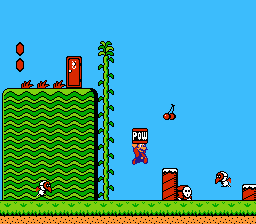 |
1 | |
| 2 | |||
| 3 | |||
| World 2 | 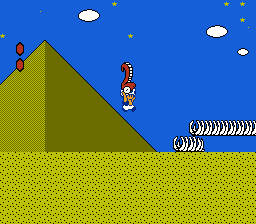 |
1 | |
| 2 | |||
| 3 | |||
| World 3 | 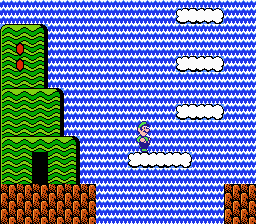 |
1 | |
| 2 | |||
| 3 | |||
| World 4 | 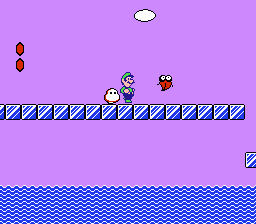 |
1 | |
| 2 | |||
| 3 | |||
| World 5 | 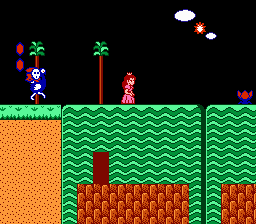 |
1 | |
| 2 | |||
| 3 | |||
| World 6 | 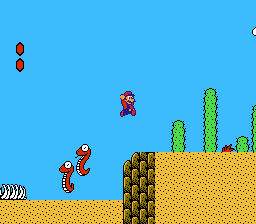 |
1 | |
| 2 | |||
| 3 | |||
| World 7 | 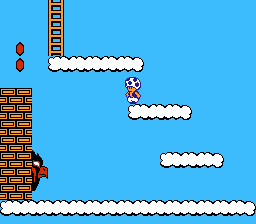 |
1 | |
| 2 |
Development[edit]
Super Mario Bros. 2 started out as a prototype Super Mario-style platform game developed by Kensuke Tanabe, a developer for Nintendo. The prototype game emphasized vertically scrolling levels and throwing blocks. It was originally intended to be a two player co-op game, allowing players to toss each other around. However, the technical limitations of the Nintendo Entertainment System made it difficult to produce a polished game with these elements. It was decided to add more Mario-like elements, such as horizontal levels (although many vertically oriented levels were retained in the final project).[16] Some time later, the Fuji Television Company requested that Nintendo create a video game using Yume Kōjō mascots, and Tanabe developed the prototype into Yume Kōjō: Doki Doki Panic, which became one of the best-selling games for the Family Computer Disk System.
In 1987, Nintendo of America got its first look at the Japanese version of Super Mario Bros. 2. Nintendo of America believed that Super Mario Bros. 2, which was a slightly altered version of the first Super Mario Bros. game with an increased difficulty level, would not be a commercial success in the United States and elsewhere in the world. To deal with this, Nintendo took the finished Yume Kōjō: Doki Doki Panic and reverted the licensing changes to once again feature Mario and his friends as playable characters. The game would later be released in Japan under the name Super Mario USA in 1992.
Many characters and abilities from Super Mario Bros. 2 later reappear in the Super Mario series. Princess Peach's occasional ability to hover in midair and pull vegetables from the ground (Super Smash Bros. Melee), for example, originates from this game. Toad's nimbleness (as seen in the Mario Kart series, where he is a light driver with good acceleration, and from his running speed in Mario Sports Mix) could also have been influenced from his uprooting speed first introduced in Super Mario Bros. 2. Shyguys, Snifits, Bob-Ombs, Pokeys, and Birdo were also introduced and would later be incorporated into later Super Mario games. Some of the enemies (most notably Bob-Ombs and Pokeys) have made countless reappearances as enemies within many of the later Super Mario titles. Wart, the main villain, never reappeared in a Super Mario game after Super Mario Bros. 2, but he appeared in the Nintendo Comics System, and was mentioned in later games. He also appeared as an ally in The Legend of Zelda: Link's Awakening under his Japanese name, "Mamu". The four playable characters return in Super Mario 3D World, where they retain their unique abilities from Super Mario Bros. 2.
Remakes and ports[edit]
- The game was ported to the American arcade machine, the Nintendo PlayChoice-10.
- In Japan, the American Super Mario Bros. 2 was eventually re-released under the name Super Mario USA. It was marketed as the American Super Mario Bros. 2, and the game is unaltered save for the title screen. As such, the ending cast uses the characters' English names (in the manual, their Yume Kōjō: Doki Doki Panic names are also included). Super Mario USA is also the name of the game in the Korean Virtual Console version.[6]
- It was later remastered on the Super Nintendo Entertainment System as a part of Super Mario All-Stars and Super Mario All-Stars + Super Mario World, and it was also included in the Wii re-release of the compilation game, Super Mario All-Stars Limited Edition. The All-Stars version of Super Mario Bros. 2 possessed updated graphics and music.
- The NES version of the game was released on the Wii Virtual Console for 500 points in 2007. It requires 26 blocks (3.3 MB) to be installed.
- The NES version of the game was released for the Wii U Virtual Console in 2013. It requires 13 MB to be installed.
- The game is one of the 30 titles included in the NES Classic Edition and Nintendo Classic Mini: Family Computer.
- The game was made available for the Nintendo Switch Online service on February 13, 2019.
BS Super Mario USA[edit]
- Main article: BS Super Mario USA
BS Super Mario USA is a broadcasted version of the game released on the Satellaview, a Japan-only add-on for the Super Famicom. It is based on the All-Stars version but has an audio drama, a different soundtrack, and many alterations in gameplay. There were four unique broadcasts, each focusing on a different world. Contestants could receive real world prizes after submitting their scores.
Super Mario Advance[edit]
- Main article: Super Mario Advance
The most notable port of Super Mario Bros. 2 is Super Mario Advance for the Game Boy Advance. This port featured the enhanced graphics and sound effects of the All-Stars remaster, as well as voice acting and various other slight changes. It was bundled with an enhanced port of the original Mario Bros. game.
Notable mistakes and errors[edit]
Some errors can be found in the credits of the game:
- Ostro and Birdo have their names swapped.
- Hoopster is spelled "Hoopstar".
- Clawgrip is spelled "Clawglip".
- Tryclyde is spelled "Triclyde".
These errors remain in Super Mario All-Stars. In the Japanese version of Super Mario Advance, the Ostro and Birdo mistake was corrected, and in the International version, the remaining names were corrected to match the manual.
Another mistake which was never fixed for the enhanced ports is the color of the vegetable tufts – in Yume Kōjō: Doki Doki Panic, the grass is consistently black, while in Super Mario Bros. 2 they are red, but keep the black coloring after being picked up. Enhanced ports maintain the red coloring for the tufts, though they turn green when dug out.
Additionally, at least three versions of the North American manual exist. One version provides the full description of Birdo ("Ostro") as "He thinks he is a girl and he spits eggs from his mouth. He'd rather be called "birdetta."[sic],[17] while another version omits the second sentence.[18] The full "Birdetta" version is more true to the original Japanese version, which explains that Birdo, known as "Catherine" in Japan, would rather be called "Cathy."[19] A third version of the manual is known to exist which properly labels Birdo and Ostro, keeps the full Birdo bio, and shows artwork of the unusual pink Beezo as gray and misnamed.[20] This matches its depiction in the game and the Yume Kōjō: Doki Doki Panic manual.[21]
The Super Mario Bros. 2 manual reuses enemy sprites and artwork from the Yume Kōjō: Doki Doki Panic manual (with the notable exception of the Pokey artwork, as well as the omission of a gray Shyguy and addition of Tweeter, Flurry, Spark, and Clawgrip[21]). Thus, it uses the designs of Albatoss and Phanto from Yume Kōjō: Doki Doki Panic.[20]
During the ending celebration sequence, there are common mistakes in the number of levels each hero completes.
Staff[edit]
- Main article: List of Super Mario Bros. 2 staff
A number of people involved in the game include the composer Koji Kondo, known for composing the main Super Mario Bros. theme. Kensuke Tanabe is the director of the game with Shigeru Miyamoto and Hiroshi Yamauchi as producers.
Pre-release and unused content[edit]
In the game's prototype, there is a different color palette for the in-game title, which includes tans and oranges, which contrasts with the final version's reds and blues. Princess Toadstool is shown to have more hair. Characters need to use a Magic Lamp to access Sub-space, similar to Yume Kōjō: Doki Doki Panic. The characters also lack the whites of their eyes and the ability to run.
Glitches[edit]
- Main article: List of Super Mario Bros. 2 glitches
Disappearing Mushroom Blocks[edit]
If the player throws a Mushroom Block offscreen and does not see it land, even to a place where it should safely land, it disappears until the player leaves through a door and comes back.
Lifesaving jar[edit]
This glitch requires precise timing; the character must be small and must enter a jar at the same time they are hit by a Phanto. If this is done correctly, the defeat fanfare plays as usual. However, the character still goes through the jar. When they exit, the character has no health sections left, yet is still alive. This glitch remains in the Super Mario All-Stars enhanced port.
Critical reception[edit]
Super Mario Bros. 2 has been received positively, with IGN editor Lucas Thomas praising the graphics, sound and replay value,[22] although he insisted that Western gamers could have gotten into the Japanese version of the game. GameSpot critic Alex Navarro agreed, and commented that the game "...shows that veering from the beaten path of a franchise's standard game design isn't always a bad idea".[23]
The game placed 47th in the 100th issue of Nintendo Power's "100 best Nintendo games of all time" in 1997.[24] It also placed 81st in the 200th Issue of GameInformer's "Top 200 Games of All Times" and placed 18th on IGN's Top 100 NES Games list.[25]
| Reviews | |||
|---|---|---|---|
| Release | Reviewer, Publication | Score | Comment |
| Wii | Marcel van Duyn, Nintendo Life | 8/10 | "It's a bit of an oddball to players familiar with other Mario games, sure, but the fact that it's so different from the rest of the series is what makes Super Mario Bros. 2 such an entertaining game. If you want a fun but unusual Mario experience, look no further - this is pretty much the textbook definition of it." |
| Wii | Lucas M.Thomas, IGN | 8.5/10 | "American gamers really do have the skill to play the Japanese Super Mario Bros. 2, but it was a good move by Nintendo anyway to create this less frustrating, more funky game; the American Mario 2 is still a lot of fun, and it inspired several aspects of future Super Mario titles. At 500 Wii Points, it's a great value for download. The only reason you may not want to pick it up is if, like Super Mario World, you already own it in another form; this game was re-released with enhanced graphics and a few other bonuses as Super Mario Advance for the launch of the Game Boy Advance back in 2001. As for the "real" Super Mario Bros. 2? Who knows. But the Virtual Console offers Nintendo a great avenue to distribute it here in its original 8-bit form, should the company ever decide we can handle it." |
| Wii | Alex Navarro, GameSpot | 8/10 | "For all its inherent weirdness, SMB2 was, and still is, quite a bit of fun. The level designs are still challenging to navigate, the bosses are still amusing to fight, and the presentation holds up. This is especially true of the music, which is some of the very best of the era. One minute spent in any of the game's subterranean levels is all you need to get that catchy tune stuck in your head for the rest of your natural life. At 500 Wii Points ($5), Super Mario Bros. 2 is a game well worth downloading, both for older audiences who remember playing it back in the day, and younger players interested in a history lesson. Granted, its value is lessened somewhat if you already own the fabulous Super Mario Advance for the GBA, or specifically want to play the Super Mario All-Stars version that came out for the SNES. But, for everyone else, it's a great platformer that shows that veering from the beaten path of a franchise's standard game design isn't always a bad idea." |
| Aggregators | |||
| Compiler | Platform / Score | ||
| GameRankings | 81.25% | ||
Sales[edit]
The game is the fourth best-selling title on the NES, with 10 million copies sold worldwide.
Gallery[edit]
- For this subject's image gallery, see Gallery:Super Mario Bros. 2.
Media[edit]
- For a complete list of media for this subject, see List of Super Mario Bros. 2 media.
References to other games[edit]
- Donkey Kong: Clawgrip tosses rocks in a very similar manner to the way Donkey Kong tossed barrels. In the Super Mario All-Stars and Super Mario Advance versions, some of the indoor areas look like warehouses with familiar-looking girders in the background.
- Donkey Kong Jr.: Sparks reappear in Super Mario Bros. 2. This makes them the only returning enemies to appear.
- Mario Bros.: POW Blocks appear as usable items.
- Super Mario Bros.: The Starman power-up appears in the game, as well as a remix of the Ground Theme from Super Mario Bros. played in Sub-space. Also, the heroes shrink once they are down to one heart point. Also, the ability to run by holding down the
button is exclusive to the Super Mario franchise, and was not present in Doki Doki Panic. The title theme is a rearrangement of the Underwater Theme from this game. Mario's artwork on the international box art is a flipped and modified version of his artwork from this game.
- The Legend of Zelda: The sound effect of Birdo spitting an egg is taken from the sound effect that plays when a magic projectile is fired from Link holding the Fire Rod or from a Wizzrobe.
- Super Mario Bros.: The Lost Levels: Luigi being a higher jumper than Mario is re-established when he replaced Mama in the game.
References in later media[edit]
- Super Mario Bros. 3: Bob-ombs return here and act similarly as in Super Mario Bros. 2. Also, Mario can pick up shells or Ice Blocks to throw them. Desert, sky, and snow themes of levels and doors returned. Players can earn lives via the Spade Panel slot minigame. Peach's sprite is also reused here.
- Super Mario Advance 4: Super Mario Bros. 3: Vegetables (which can also be added to the main game via the Blue Green Switch), soft sand that can be dug through, Porcupos, Flurries, Hoopsters, and locked doors return in this game's World-e levels.
- The Super Mario Bros. Super Show!: Super Mario Bros. 2 is represented heavily in this show along with the original Super Mario Bros. Nearly all of the characters (notably excepting Wart and Pansers) and game play props appeared in the stories, and are often more prominent than the original game's features.
- Super Mario World: Pokeys, Ninjis, and Pidgits first reappear here.
- Wario's Woods: Toad's strength returns in this game, and he picks up, carries, and throws Bombs and his enemies as he did in Super Mario Bros. 2. Some enemies (such as the Spud) also vaguely resemble the vegetables from Super Mario Bros. 2. Birdo also makes her first reappearance in the Super Mario franchise through this game.
- Super Smash Bros. Melee: A Super Mario Bros. 2-themed stage called Mushroom Kingdom II is selectable, and Birdo frequently appears at the sides of the stage, spitting eggs at fighters. This stage also plays Super Mario Bros. 2's Ground Theme, as well as that game's boss music (during Sudden Death matches). Also, parts of Princess Peach's moveset (floating and picking vegetables) come from Super Mario Bros. 2. There are also trophies of Birdo, Pidgit, and the vegetables.
- Super Mario 64 DS: Luigi's scuttle jump appears to have been influenced by his jumping style from Super Mario Bros. 2.
- Mario & Luigi: Partners in Time: Pidgits reappear and they attack as they do in Super Mario Bros. 2.
- Super Princess Peach: The ability to pick up enemies and throw them at each other to defeat them is reused in this game, although it is not the only way Peach can defeat enemies as she can also attack enemies with Perry.
- Mario Hoops 3-on-3: The final victory theme is a rearrangement of the ending theme of Super Mario Bros. 2.
- Super Paper Mario: Francis mentioned having a comic called, "Cyborg Wart", which is clearly a reference to Wart. Also, there were Sammer Guys by the names of "Squatting Birdo", "Pidget on Wind's Breath", "Sleeping Turnip", "Upward Leaping Ninji", "Plugged Snifit", and "Guy Who Fry", references to Birdo, Pidgit, Turnip, Ninji, Snifit, and Fryguy, respectively.
- Super Smash Bros. Brawl: Peach retains her moveset from Melee, and there's another trophy of Birdo. Also, Wart and Birdo's names appear in the random name selection. Finally, Super Mario Bros. 2 is available as a Masterpiece to play. The character the trial starts out with is Peach (but it is possible to play as another character if one gets a Game Over before the trial ends). Snifit and Mouser appear as stickers. To unlock it, one must win five brawls with Peach.
- Mario & Luigi: Bowser's Inside Story: In this game, Wiggler sometimes attack by pulling out vegetables, which are the same ones that are seen in Super Mario Bros. 2. Also, one of Bowser's brainwashed minions states that he forgot what Bowser's Castle was originally called (before it was turned into "Fawful Theater"), and mistakenly referred to it as "Mouser's Castle".
- New Super Mario Bros. Wii: The way the characters are able to pick up the items, such as the POW Block, returns.
- Super Mario Galaxy 2: Luigi's Triple Jump may be based on his jumps from Super Mario Bros. 2.
- Mario vs. Donkey Kong: Mini-Land Mayhem!: Arrangements of the Ground Theme, life lost, boss battle, and victory themes are heard in World 1.
- Mario Sports Mix: Toad's throwing animations appear to be influenced from Super Mario Bros. 2, and his high running speed returns.
- Super Mario 3D Land: Mario and Luigi's chargeable jumps while crouching resemble the Power Squat Jump ability that the playable characters can perform in Super Mario Bros. 2 while crouching.
- Mario Kart 7: The Shy Guy Bazaar course makes references to the elements from Super Mario Bros. 2 such as the addition of magic carpets and jars in their original color schemes. The namesake Shy Guys also appear to be the dominant audience members throughout the course.
- New Super Mario Bros. 2: The Cannon levels resemble Sub-space.
- Paper Mario: Sticker Star: Pokeys based on their appearance in Super Mario Bros. 2 return. Also, the main theme is a jazzy version of the credits theme from this game. Ninjis reappear as enemies.
- Super Mario 3D World: Princess Peach and Toad are once again playable characters, and everybody has the same abilities as in Super Mario Bros. 2. An arrangement of Super Mario Bros. 2's "character select" music is used for the Lucky House.
- Super Mario 3D World + Bowser's Fury: A portion of the music of Scamper Shores references the start of Super Mario Bros. 2's Ground Theme.
- Donkey Kong Country: Tropical Freeze: The ability to pluck items out of the ground (using Item Handles) and the ability to carry specific enemies were brought over from Super Mario Bros. 2, according to Kensuke Tanabe.[26]
- NES Remix 2 / Ultimate NES Remix: Several challenges are based on this game.
- Super Smash Bros. for Nintendo 3DS / Wii U: Grass appears as an item in these games. Peach's Vegetable move and floating ability returns, this time with the vegetable-pick sound effect taken directly from the NES version of the game. Also, Luigi performs a scuttle in his jump, a technique that originated in this game. The Ground Theme is present in Super Smash Bros. for Wii U and can be heard on the stages Peach's Castle (64) and Super Mario Maker.
- Captain Toad: Treasure Tracker: Turnips return, alongside various roof structures that resemble Wart's castle.
- Mario vs. Donkey Kong: Tipping Stars: New arrangements of the Ground Theme, world clear, and life lost themes appear in Rolling Hills.
- Super Mario Maker / Super Mario Maker for Nintendo 3DS: The door sprite from Super Mario Bros. 2 is used in the Super Mario Bros. 3 game style in these two games. Shy Guy's sprite is reused for his costume, and sound effects from Super Mario Bros. 2 can be heard in the costumes for Peach, Shy Guy, and Birdo. A course based on World 1-1 also appeared as an Event Course on December 2015.
- Mini Mario & Friends: amiibo Challenge: The abilities for Mini Luigi and Mini Peach work similar to their counterparts in this game. The arrangements from Mario vs. Donkey Kong: Tipping Stars are reused in Boost Pad Bonanza.
- Paper Mario: Color Splash: Shy Guys are the most common enemy in this game. An arrangement of the Ground Theme from Super Mario Bros. 2 is used in the Spinning-Door bonus areas. Jars make an appearance in Château Chanterelle. Wart is mentioned by a yellow Toad.
- Super Mario Run: Ninjis return in this game, retaining their colors from Super Mario Bros. 2 and look from Super Mario Advance artwork. An arranged version of the underground theme from Super Mario Bros. 2 is featured in the background music for Remix 10. This is also Peach's first playable appearance in a 2D Super Mario platformer since Super Mario Bros. 2, although the player has to rescue her in order to play as her as she is also the usual damsel in distress in this game. As in her playable appearance in Super Mario 3D World, Peach also retains her ability to float from Super Mario Bros. 2 along with the addition of slowly descending in mid-air.
- Super Mario Odyssey: Mario can carry and throw Turnips, as in Super Mario Bros. 2.
- Super Mario Party: Shy Guy's sprite appears in Puzzle Hustle.
- Super Smash Bros. Ultimate: Peach (and by extension, her new Echo Fighter Daisy) returns her float and vegetable moves from the previous games. Mushroom Kingdom II from Super Smash Bros. Melee returns with updated graphics based on Super Mario All-Stars and various spirits originating Super Mario Bros. 2 also appear. A new arrangement of the Ground Theme is also featured.
- Super Mario Maker 2: The SMB2 Mushroom was added in the version 3.0.0 update and grants the player Mario's abilities in Super Mario Bros. 2. The 3.0.0 update also added the Cursed Key, which summons Phanto once it is collected.
- Mario Kart Tour: The Shy Guy Bazaar course from Mario Kart 7 returns as a classic course in Mario Kart Tour. The special skill of Birdo (Green) is the Fire Flower, referencing Green Birdo's ability to shoot fireballs in Super Mario Bros. 2.
- Super Mario Bros. Wonder: The Power Squat Jump move reappears as the Crouching High Jump badge, and Luigi's high jump and Scuttle return as the Floating High Jump badge. Peach's Floating Jump returns as the Parachute Cap badge.
Quotes[edit]
- "Whenever you pick up a key, Phantos will relentlessly pursue you; when you drop it, he departs. Pick up the key continually and keep throwing it down till he's gone for good." — Nintendo Game Pack with Top Secret Tips!, Card no. 17
- "Uprooting and lifting things as you played gave the game a new feel. It was released in Japan as Super Mario USA." — Shigeru Miyamoto, Super Mario History 1985-2010 Booklet
- "The basic controls have a very free, silly feeling to them that I absolutely love." — Takashi Tezuka, Super Mario History 1985-2010 Booklet
- "I adjusted the sounds of the NES to make it sound like a lot of different instruments were being played." — Koji Kondo, Super Mario History 1985-2010 Booklet
Names in other languages[edit]
| Language | Name | Meaning | Notes |
|---|---|---|---|
| Japanese | スーパーマリオUSA[?] Sūpā Mario Yū Esu Ē |
Super Mario USA | |
| Chinese (simplified) | 超级马力欧USA[?] Chāojí Mǎlì'ōu USA |
Super Mario USA | |
| Chinese (traditional) | 超級瑪利歐USA[?] Chāojí Mǎlì'ōu USA |
Super Mario USA | |
| Korean | 슈퍼 마리오 브라더스 2[?] Syupeo Mario Beuradeoseu 2 |
Super Mario Bros. 2 | |
| 슈퍼 마리오 USA[27] Syupeo Mario USA |
Super Mario USA |
See also[edit]
Trivia[edit]
- The South Korean Virtual Console release on Wii is the Japanese version, whereas the South Korean release on Nintendo 3DS uses the international version.
- If the player defeats Wart with Luigi, he does one jump in the ending cutscene instead of two.
- On the Nintendo Entertainment System / Famicom, all sprites are limited to three colors per sprite. Despite this, Mario, Luigi and Princess Toadstool have white in their eyes along with three additional colors. This effect is achieved by a white rectangle hidden behind the character's sprite, while the eyes are transparent. This is part of the reason why their eyes flicker when entering a door or overlapping with another sprite.[28]
- Despite the fact that some artwork still depicts Mario and Luigi with blue shirts, and red and green overalls respectively, the sprites swap the shirts' and overalls' colorization. This change was later officialized in Super Mario Bros. 3.
References[edit]
- ^ Nintendo Power Pak Source. Nintendo of America (American English). Page 20.
- ^ NES Games (PDF). Nintendo of America (American English). Archived September 21, 2008, 01:55:24 UTC from the original via Wayback Machine. Retrieved June 5, 2024.
- ^ Super Mario Bros. 2 (Video Game 1988) - Release info. IMDb (English). Retrieved June 5, 2024.[better source needed]
- ^ October 19, 2015. Super Mario Bros. Hyakka: Nintendo Kōshiki Guidebook, Super Mario USA section. Shogakukan (Japanese). ISBN 978-4-09-106569-8. Page 64.
- ^ Super Mario Bros. 2 (VC). The Mushroom Kingdom. Retrieved June 5, 2024.
- ^ a b Wii. Nintendo Korea (Korean). Archived December 5, 2008, 12:09:42 UTC from the original via Wayback Machine. Retrieved June 5, 2024.
- ^ スーパーマリオUSA. Nintendo (Japanese). Retrieved June 5, 2024.
- ^ Nintendo (February 5, 2019). ファミリーコンピュータ Nintendo Switch Online 追加タイトル [2019年2月]. YouTube (Japanese). Retrieved June 5, 2024.
- ^ Nintendo of America (February 5, 2019). Nintendo Entertainment System - February Game Updates - Nintendo Switch Online. YouTube. Retrieved June 5, 2024.
- ^ Nintendo of Europe. #SuperMario Bros. 2 and #Kirby’s Adventure are coming to #NintendoSwitchOnline – Nintendo Entertainment System on 13/02! #NES. X. Retrieved June 5, 2024.
- ^ February 13, 2019. New #NES games have been added to #NintendoSwitchOnline – Nintendo Entertainment System! Save the world of Subcon in #SuperMario Bros. 2, and use your enemies’ powers against them in #Kirby’s Adventure!. X (Australian English). Retrieved June 5, 2024.
- ^ a b Sakai, Kazuya (Ambit), kikai, Akinori Sao, Junko Fukuda, Kunio Takayama, and Ko Nakahara (Shogakukan), editors (2015). 『スーパーマリオブラザーズ百科: 任天堂公式ガイドブック』. Tokyo: Shogakukan (Japanese). ISBN 978-4-09-106569-8. Page 11–13.
- ^ Nintendo Co., Ltd. HISTORY → Series → Super Mario. Mario Portal. Retrieved 6 Nov. 2024. (Archived October 3, 2024, 11:52:39 UTC via Wayback Machine.)
- ^ McLaughlin, Rus (September 13, 2010). IGN Presents: The History of Super Mario Bros.. IGN. Retrieved June 5, 2024.
- ^ Mackie, Drew (June 21, 2023). Why Is Super Mario Bros. 2 Missing a Level?. Thrilling Tales of Old Video Games. Retrieved June 23, 2024.
- ^ Kohler, Chris (April 1, 2011). The Secret History of Super Mario Bros. 2. Wired (English). Retrieved June 5, 2024.
- ^ 1988. Super Mario Bros. 2 instruction booklet (PDF). Nintendo of America (American English). Page 27.
- ^ Super Mario Bros. 2 instruction booklet (later edition) (PDF). Nintendo of America (American English).
- ^ The Mushroom Kingdom provides the original Japanese biography of Birdo/Catherine. The Mushroom Kingdom (English). Retrieved June 5, 2024.
- ^ a b 1988. Super Mario Bros. 2 - CLV-P-NAADE.pdf (PDF). Nintendo of America (American English). Page 24-27.
- ^ a b December 21, 2013. The Happiest Arabian Family in Video Game-dom. Back of the Cereal Box (English). Retrieved June 5, 2024.
- ^ Thomas, Lucas M. (July 5, 2007). Super Mario Bros. 2 Review. IGN (English). Retrieved June 5, 2024.
- ^ Navarro, Alex (July 5, 2007). Super Mario Bros. 2 Review. GameSpot (English). Retrieved June 5, 2024.
- ^ September 1997. Nintendo Power Volume 100. Nintendo of America (American English). Page 94.
- ^ 18. Super Mario Bros. 2. IGN (English). Retrieved June 5, 2024.
- ^ Nintendo of America (June 11, 2013). Wii U Developer Direct - Donkey Kong Country: Tropical Freeze @E3 2013. YouTube (American English). Retrieved June 5, 2024.
- ^ From the Korean version of Super Smash Bros. Ultimate.
- ^ Retro Game Mechanics Explained (November 3, 2020). 5 Colors in One Sprite Explained - Audiovisual Effects Pt. 04. YouTube. Retrieved October 26, 2022.
External links[edit]
- Mario Portal Game Archive (EN)
- Mario Portal Game Archive (JP)
- Super Mario Bros. 2 North American NES manual
- Super Mario USA Japanese Famicom manual
